Virtual Fashion,
Fabricant
We are all a little bit on the fence about robots. Getting in the habit of talking to them feels quite dystopian, or utopian, depending on your view. Tabitha Goldstaub, a rockstar tech entrepreneur, wants to take tech out of brotopia. She is chairing the UK Government’s AI Council at age 34 and is the author of How to Talk to Robots: A Girl’s Guide to a Future Dominated by AI, which serves as a practical guide for the tech-uninitiated. “It is important to stop seeing tech as boring, scary or for someone else,” she says. Having co-founded the Artificial Intelligence advice platform CogX, and hosted events on why we need women in AI, Tabitha advocates for increased diversity, specialising in communicating the impact of AI.
Tabitha is determined to arm women with knowledge on both the potential rewards and risks coming our way. And to answer our burning questions on all things AI: How will it affect us, why should I care? Will robots take our jobs? Will there be girlfriends embedded in our phones that sound like Scarlett Johansson? Can AI cause the demise of society? The book reveals what is being done by the AI community to combat the potential risks and explores what actions you can take individually rather than just waiting for regulation. It is impressive to picture Tabitha writing a book with one hand, slowly, so as not to move her arm too much as it would wake up her newborn son Otis. She is equal parts optimistic and cautious about the future. Never alarmist but committed to making more people aware of the possibilities she feels she has the privilege to understand when it comes to tech. And her informative but relatable nature makes this complex world feel a lot more accessible. When asked about sex robots on a podcast (a topic that’s not her favourite nor her expertise), she laughingly quips, “God, that’s a waste of great engineers.”
Although in her book, she does not shy away from any area concerning AI, be it our sex lives or warfare. Instead, with help from her prominent female circle in the industry, she features a formidable array of expert interviews. The intersection of tech and women is where Tabitha is steering the conversation. She thinks that women, historically more associated with empathy and having to adapt to changes, should be at the forefront of working with AI. And more involved in the decision-making spaces. Walking the talk, her book’s proceeds will go to women who are affected by automation through Rosa, a charity that funds grassroots women’s organisations in the UK.
It all started with Gameboy. Growing up in a household dedicated to fashion, Tabitha spent her days sprawled across the floor, somewhere in the backdrop of a fashion show, more entranced by her Gameboy than the clothes on the catwalk. She would play MarioKart with her brother for hours on end, creating personal backgrounds on Paint for each family member, feeling like a tech Picasso. When she was a little girl, the world of tech felt welcoming and as genderless as her Tamagotchi.
The industry being so male-dominated is why she chose to aim the book at anybody who identifies as a woman, “because there were enough man-uals.” In the early days of AI, she felt overly optimistic about its potential to better all our lives. But things began to shift when she “woke up to the reality that it could potentially have serious negative effects for many women.”
One concerning fact is the lack of diversity when it comes to the people who are designing these technologies. Data sets, having been created predominantly by men, are often male-biased. This is known as the “gender data gap.” It means that the conclusions drawn from that data are less likely to reflect the needs and experiences of women and women of colour in particular. A relevant example of this is the use of male-only mannequins during car crash trials; resulting in higher death rates for women in real accidents. A more recent example is the same scenario initially happening during the pandemic, with PPEs (Personal Protective Equipment) designed for a tall male body, hence not being as protective for other healthcare workers.
It was thought machines would be great for eliminating human bias. But these AI systems will carry on their creators’ biases. And there is a risk that they may not serve everyone as efficiently, or even worse, negatively affecting some, if they are designed in atmospheres that lack diversity. On top of that, traditionally, there is already a digital divide where men receive more training and are more tech-literate than women in general. Jobs that are more likely to be automated are also usually occupied by women.
We should care about AI even if we have or want to do nothing with it because nobody will be unaffected by it. Suppose you have a smartphone in the palm of your hand. You are probably already interacting with it daily: Dinner delivery, Netflix’s suggestions, your inbox being clear of spam, Google Maps. “AI is embedded in all the products you use at home, work and play and so if you don’t master it, it could master you,” Tabitha says. But AI is more than just helping us avoid traffic or introducing us to yet another indie band it thinks we might like.
“It is thought that by 2025, 80% of enterprises will have implemented some sort of AI strategy into their portfolio. But just because AI is often tied to automation does not mean that everyone will lose their jobs. Automation will, however, affect the kind of jobs available to us.” One silver lining is the possible elimination of the dangerous, dirty, and dull jobs for humans and opening up spaces for new jobs if we can fairly handle this transformation.
AI could help solve some of the most complex problems such as climate change, poverty and hunger. There are numerous potential benefits: assisting the overwhelmed healthcare systems, discovering medicine, aids for those with physical impairments and instant translating tools. Tabitha credits AI for helping her overcome dyslexia and believes AI has the potential to unlock a future where humans live longer. “AI systems will detect disease, reduce energy consumption, decide which of us receives an approved loan, power vehicles to be autonomous and self-driving, and both inform and control our news and advertising feeds.”
We all know that with great power, comes great responsibility. And as with everything concerning AI, the rewards are not without risks. Looking at modern-day examples on how AI can impact society; fake dangerous content, and algorithms creating a bubble that can impact the way we see the world are vexing. “AI, if used as a weapon against democracy, can make everything faster, deeper and more damaging.”
One of the biggest fears shared by both the public and industry leaders such as Elon Musk seems to be AI outsmarting humans, often cited as something that could wipe out humanity. Tabitha explains that there are two kinds of AI. The one we interact with daily is Narrow Artificial Intelligence. The one we associate with something going wrong existentially, Ex-Machina style, would be Artificial General Intelligence (AGI), also known as Super Intelligence. “It is important to note that leading researches can’t agree on whether AGI is even possible,” Tabitha says.
She is more concerned with the current issues surrounding AI that already affect many people outside the industry. Her biggest fear is the same small group of tech bros being in total control of AI like they did with other technologies. “The questions we need to ask here are: who controls the data? Who receives the information if AI deems someone to be ‘at risk’?”
One way to observe how a potent external factor might exacerbate existing problems and inequalities such as poverty, prejudice, race, ethnicity and gender, is the glimpse the pandemic gave us. While we witnessed some potential benefits of AI regarding healthcare, tracking, and more accessible online education, the disparity in how certain people were more negatively affected might be a way to think about AI’s future effects.
Tabitha dedicates a whole chapter in her book to AI in relation to the coronavirus crisis. She acknowledges that AI will be an essential tool in the fight against coronavirus and hypothesises that there will be a massive shift in our social behaviour as tracking our health becomes the new normal. Her concern is that “in our haste for these AI technologies to be rolled out, discussions about gender could be skipped over. Historically, AI systems are biased against women, so can we rely on them making decisions that are inclusive for all genders during a pandemic?”, she questions. “During this pandemic, we need to ask who is able to go online and actually benefit from AI-powered resources for learning?”
Ultimately, it is up to us to keep our wits about us. When asked whether we should trust AI, Tabitha advises to “always be sceptical.” And to always share what you learn with others. “If women are to succeed in an AI world, we need to do so together.” The biggest myth she would like to bust about AI is “that humans don’t have control over AI systems. And they are some magic or mutant creation unto themselves. In reality, all AI is created by a human, and they, their company and the government, should be responsible and accountable for it.”
By Defne Saricetin for Semaine. Images by Tabitha Goldstaub.
Explore Tabitha’s London, believe us, she knows what she’s talking about. Use her tips for a great day in and about town.

My partner Ed converted his grandfather’s old schoolhouse so if you rent the one bedroom dream getaway make sure you have a bath in the moon light and let me know you are coming!
Suffolk,
United Kingdom

I’ve celebrated most of my birthdays here. Order the Saltimbocca rolled up pizza, it’s a family run joint and sometimes they forget to put it on the menu so just ask.
7 Ladbroke Road London W11 3PA,
United Kingdom

The best kids playground in London with a big wooden ship and the only place out of soho where you can by Gelupo icecream.
Hyde Park London W2 FRU,
United Kingdom

Go for the exhibition, stay for the tour around the building, it was the first ever purpose build office block so a lot of stories to tell. Before you go home, cross the road and check out Clement Danes Church it has RAF skulls and crossbones all over the floor, it’s beautiful.
The Strand London WC2R 1LA,
United Kingdom

hatever the exhibition is you’ll love it and the permanent collection is just fantastic too. They bill themselves as a “museum and library for the incurably curious”. The shop is also superb. Continue on to coal drops yard, north of Kings Cross after for lunch at Barafina outside with your own mini bbq.
183 Euston Road London NW1 2BE,
United Kingdom
Step into Tabitha’s personal library and let yourself be challenged by the ideas, ideals and advice of the authors who influence Tabitha.
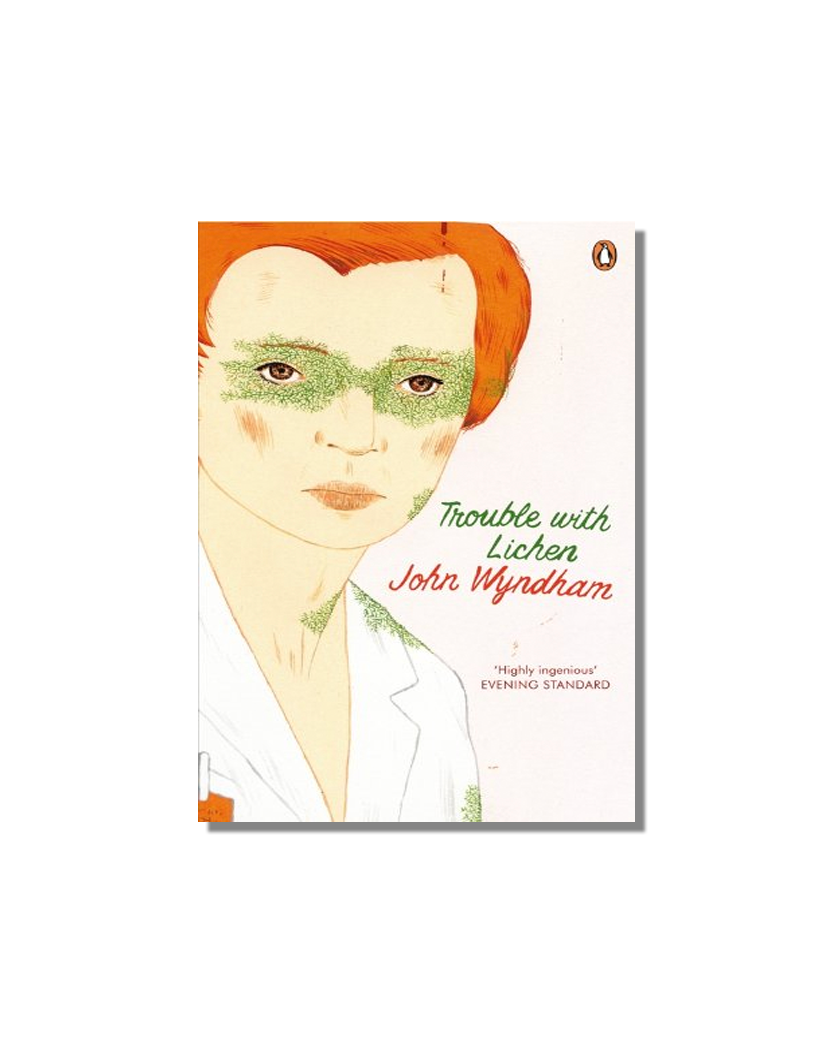
9.99
This 1960s sci-fi novel imagines a world in which two scientists discover a lichen that gives people longer to live. The female student and the male professor take very different approaches to their joint discovery - Diana goes on to upend the traditional roles of women in society while Francis hoards the information. I loved reading this and replacing the lichen with AI and playing out how AI could be the ultimate emancipator, freeing women from the status quo.
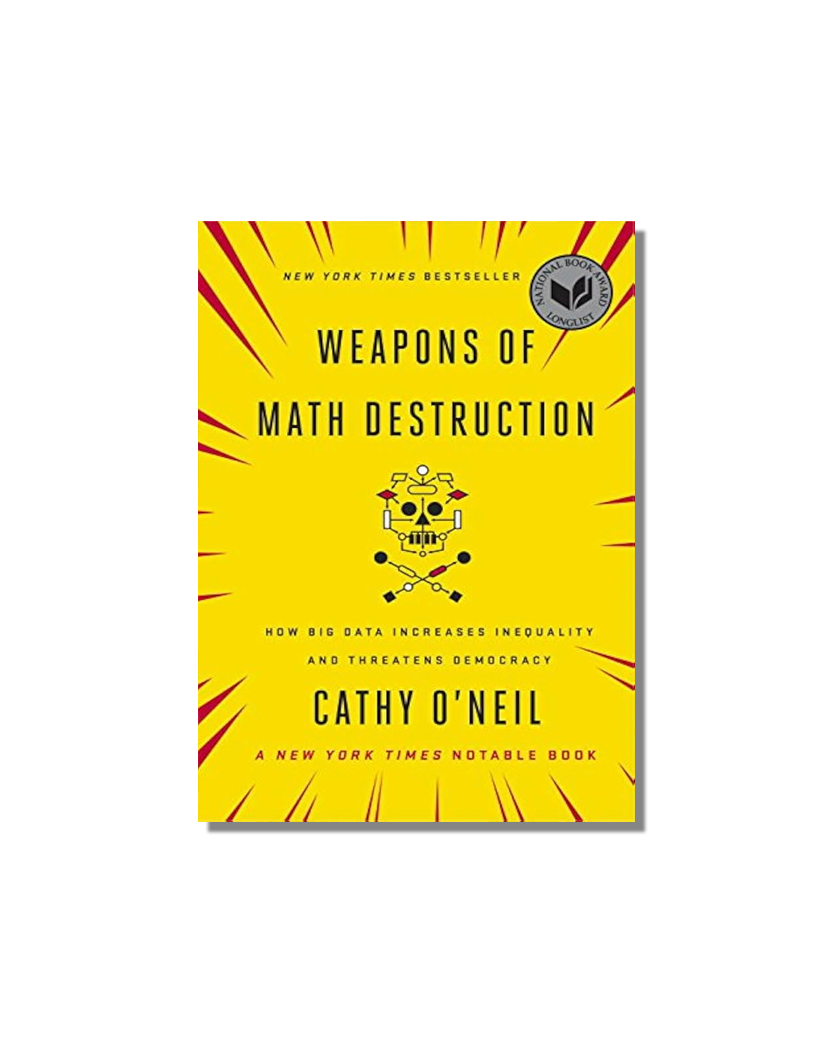
10.99
I’ve referred to Weapons of Math Destruction a lot in my book because O’Neil uses clear and recognisable real-world examples from a range of sources (like the financial crash of 2008 or student loan applications) to show how even the best intended algorithms can have consequences for social and economic inequality.
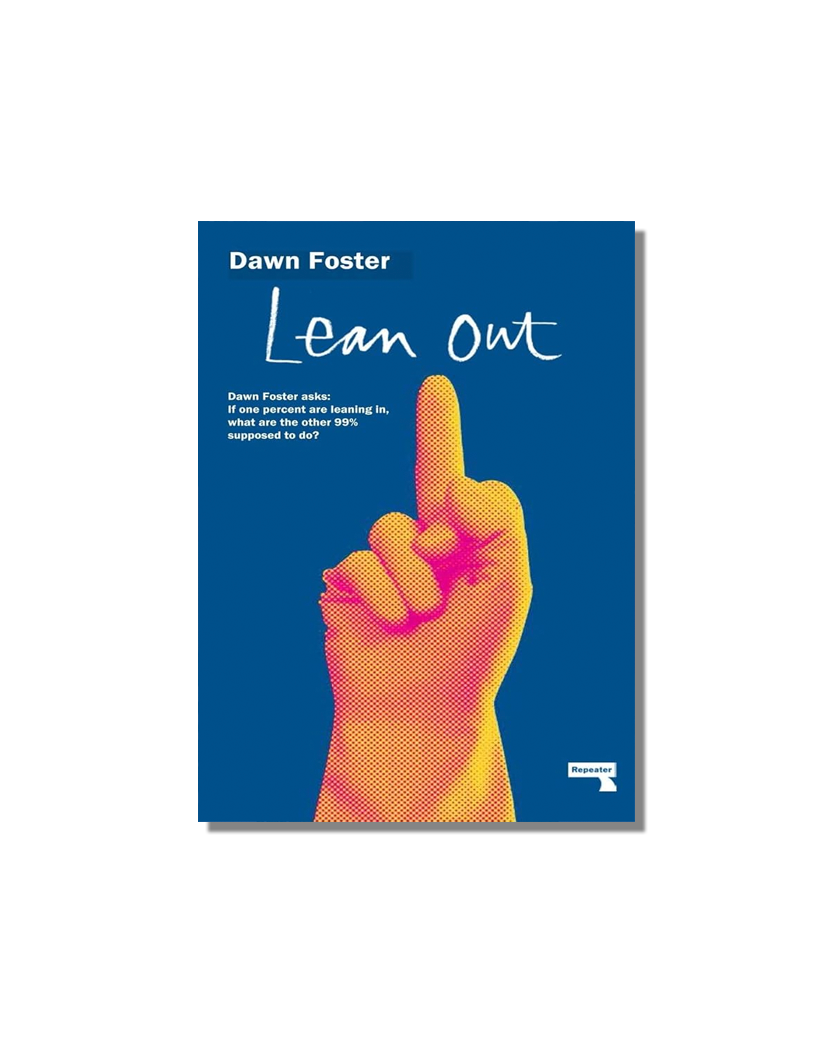
8.99
It’s jolted me from my privilege realising that Sheryl Sanberg’s advice to “lean in” isn’t possible for so many women. It made me realise we have to change the system, not ourselves.
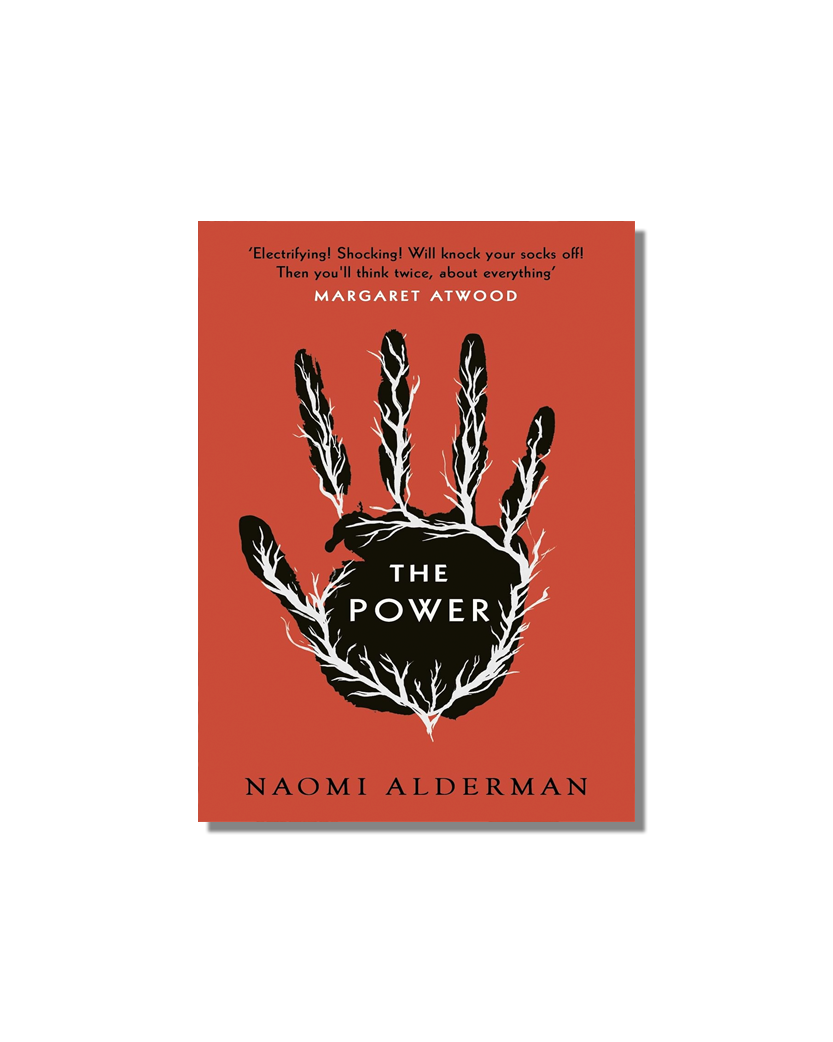
9.99
Weaving together the story of four people navigating a new society, where, overnight, girls become more powerful than men, The Power questions our ideas about strength, leadership, empowerment and, of course, girlhood. I felt it was a great thought experiment for what would happen if AI gave women equal or greater powers to men. I don’t know if this is how Alderman intended readers to think but couldn’t help but draw parallels with this technology.

8.99
Your children are not your children. They are the sons and daughters of Life’s longing for itself.” This beautiful book of poetry put in words to my feelings about raising children to be independent and growing a strong lasting relationship with your partner “stand together yet not too near together: For the pillars of the temple stand apart, And the oak tree and the cypress grow not in each other’s shadow.
Ever wondered what’s on Tabitha’s finger tips? Here are Tabitha’s essential helpers that guide her through the day.

Not too hard but tricky enough to keep my brain relaxed and not wandering. Almost like my own meditation

It’s an app to keep photos of your kids and post them privately for family and friends. It’s got a newsfeed-esq social media feature but as it’s a paid membership the resulting T&Cs means your photos are safe. You get to keep and share your memories in one place without your children growing up with their face on the web without their permission.

I love walking, and walk each morning at 7am for at least an hour.Dark Sky is the best weather app so I can prep clothes, umbrellas and buggy covers!
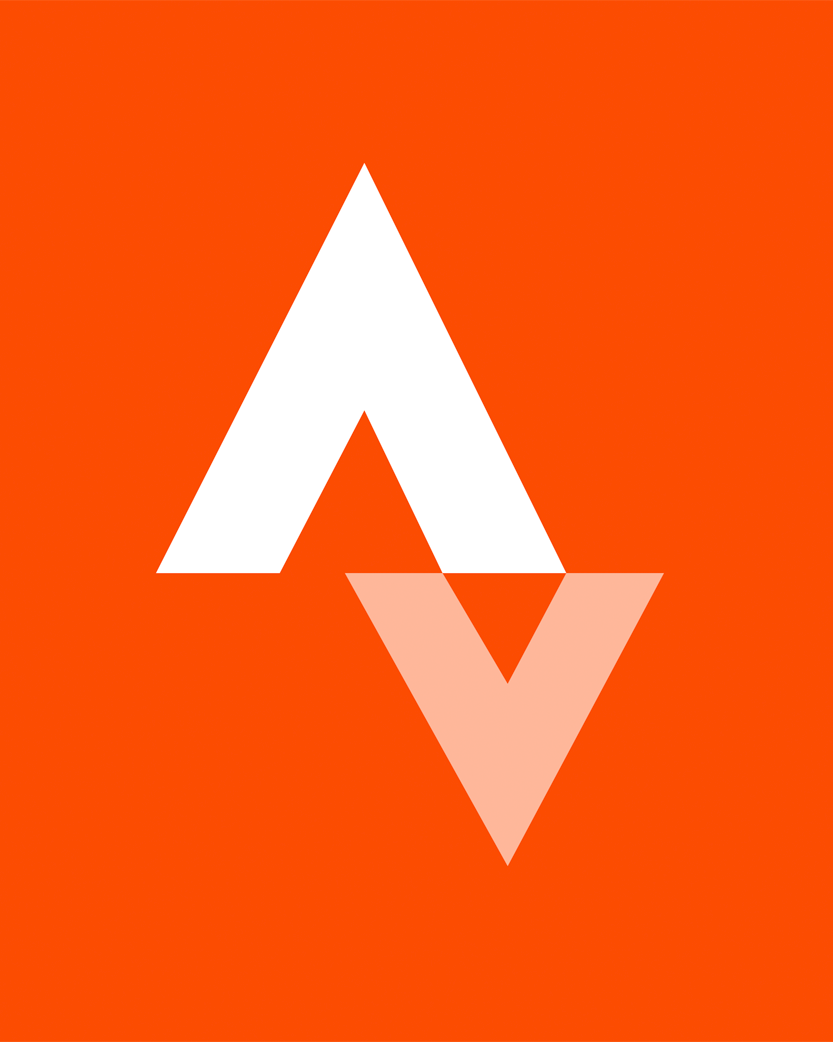
Strava keeps track so I can see how far I can get and plan fun routes and get the occasional “kudos” thumbs up.

Become a member today to enjoy all our Tastemakers address recommendations on our interactive travel guide world map!
SUBSCRIBE NOWWhat does the word “taste” mean to you?
Tabitha:
Only eating, wearing, listening to what makes you feel comfortable.
Do you have a life motto that you live by?
Tabitha:
Tis better to have loved and lost than never to have loved at all. I take this to mean that you should give everything a go even if it risks failure.
What was the last thing that made you laugh?
Tabitha:
My little boy Otis …doing anything!
What are your favourite qualities in a human being?
Tabitha:
Kindness, empathy, curiosity and bravery.
Who is your hero?
Tabitha:
Dorothy Vaughan.
What is your biggest flaw?
Tabitha:
Impatience.
What would your last meal on earth be?
Tabitha:
Very very very slowly cooked tomato pasta.
What does success mean to you?
Tabitha:
Freedom.
If you had the power to change anything you wanted in the world, what would you change?
Tabitha:
‘Restore’ the climate to scientists recommendations.
